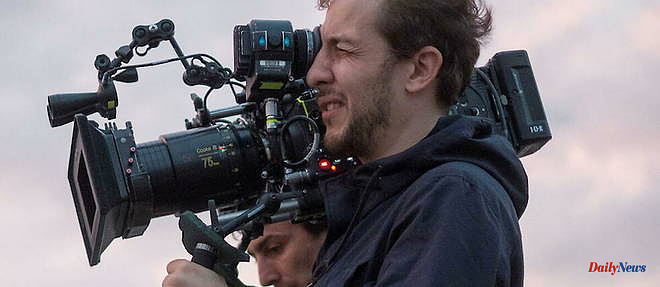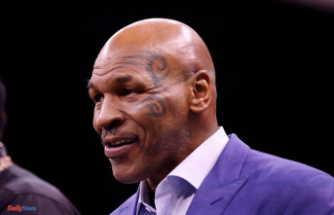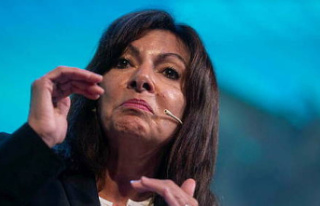Aïssa was born in Algeria in the 1980s. Still a child, he moved to France with his older brother, Ismaël and his mother, Nadia. At 23, he has a dream: to become a French soldier. After a brilliant school career, the young man joined the prestigious Saint-Cyr school. During an "integration" hazing, he drowned. Pour la France is inspired by the story of Jallal Hami, the brother of director Rachid Hami, who died in October 2012. The film traces a quest for dignity: that of the family battle for the funeral. Between the military cemetery and the Muslim square of a suburban town, the symbol is not the same.
If the story starts with the death of Aïssa, the crux of the story lingers much more in the dilemmas and conflicts that take place before and after. The Franco-Algerian identity is neither treated as such nor discussed. She takes her place like a movie character exploding with richness and complexity.
Rachid Hami does not like complacency. Whether it's that of the military institution facing those responsible for the death of his brother, like the looks at immigrants who live in the suburbs. With his film, he does not settle accounts, he makes cinema. Encounter.
Le Point Afrique: You chose to tell the Algerian part of this family's story, why was it important to talk about it?
Rachid Hami: I think it is central to understand the roots of this young man, where he comes from, and to understand implicitly that being French is not the place of birth that determines him but it is the life one leads in a country. So showing that we are fleeing Algeria, Islamism, is important. This very Islamism to which it is brought back here, in the cliché of the Algerian. When we talk about him, he feels stigmatized by this cliché he fled.
It is also a way of showing the loss of innocence of these children. We cannot speak of identity if we do not show the source and the genesis of the history of this family.
The reason for leaving is therefore the black decade in Algeria. You barely sketch this big story to focus on a more intimate narrative, why?
Because what interests me are people. These are the consequences of the great story on everyone's privacy. When I show the death of Boudiaf*, I show the reasons for the exile. When the president gets killed live on TV, what's left of a country?
The confrontation with the French army ultimately takes up little space. How did you want to construct the film?
There's a cliché that I want to avoid as a filmmaker: because it's my story, because I'm of Algerian origin, because I'm from the suburbs, should I make a social film? Some people expect a victim film from us, angry all the time. The opposition of the poor Arab family to the army. It's not reality and I don't want to make a faux-documentary naturalist film to be like "this is how hard life is".
I claim my right to fiction, cinema and romance. What interests me is the odyssey of this family. The gesture of cinema that I have has no difference with any other filmmaker. We are looking for dramaturgy. The part on Algerian history is inspired by Abel and Cain. The French part is a contemporary Antigone with the battle for the honor of a young soldier, so that he has a dignified funeral. Then there is the adventure film that takes place in Taiwan, at the end of the world. When you see Aïssa speak Mandarin and English, it breaks 35 years of clichés. Usually when we talk about these people, we put them in concrete towers. There, they are told elsewhere and otherwise.
And there is a criticism of the army, but not where you expect it. When the only honorable and worthy man gets punished, the criticism is there. Destructive anger, there is none. It may be the one people are waiting for, but that anger I've never let it get the better of me, because I don't feel it. I don't want to be blinded by racism. The sadism of the people who organized it is more dangerous and condemnable, because you can demonstrate that it is not racism, but you cannot demonstrate that it is not sadism.
You tell of a mother who wishes to leave Algeria for a better life in France. The disappointment is inevitably great. Is this disillusionment symbolized by his refusal to hear La Marseillaise at the funeral?
For me, it's something else that's going on in this scene. Suddenly, it is no longer the music of France, but that of the death of her son. At that point, it becomes a funeral hymn. And that the anthem of the Republic is that of the death of the young man, it is the ultimate moment of integration. It's the French dream, despite mother's pain.
And the figure of this mother is also important because Arab women are often shown to be illiterate, submissive, etc. How can you say that of an entire population? Of course it exists, but yes there are educated people, strong, educated women who have ideals. That's the reality and we get lost in clichés. 99% of the depictions I see are not the truth, it's science fiction to me. Our mothers, sisters and girlfriends are misrepresented. A woman who stands up, that's what I've seen all my life. Even the little old women in the villages in Algeria, they speak French. I refuse clichés for the army as well as for this family. We have suffered enough stigma.
You show the transmission of patriotism, between father and son. For the son, it focuses on the country of adoption and not the country of origin. Aïssa wants to be a soldier to defend France. How do you explain it?
We defend the land on which we exist. We cannot defend the land on which we do not exist. And the land where we exist is France. When Karim wears Zidane's shirt, he wears an image of France. Zidane chose to fight for this country.
I feel deeply French. Even if I am of Algerian origin, I eat in France, I live in France. I spend 2 weeks a year in Algeria, I'm not going to defend Algeria. Aïssa defends her republican and democratic ideal and that says something vital for all of us.
A very strong bond exists between the two brothers, despite their differences and especially their differences. How have you worked to show this brotherhood?
Ask yourself: who is the first person you fight with in life when you have a sibling? The sibling relationship is a relationship steeped in conflict. This is where brotherhood exists. When we want to show it, we don't show friendship. We show conflict and love.
Would you say that the Franco-Algerian identity is particularly difficult to bear?
I have a problem with the identity in the singular, I see myself protean and full of facets. And even the military have many facets. We are several things at the same time and as long as people want to put an identity on a layer of the population, it will never be the right one.
Cinema is the art of showing and not the art of dialogue. Seeing something is strong. The power of cinema is ruthless. Spectators have no choice but to see that people are many. You have to have the strength to show nuance.
How are you living the promotion period of the film?
I have an artistic message. I am a movie man. I am not a politician, not a sociologist. I tell the story with my artistic belief and sensitivity. I'm a cinema lover and that's what interests me. I'm tired, I'm a little drained, but I'm very happy that the film exists and sparks dialogue and debate. I refuse to make a militant film, but I make political films, because they question and make people talk.
* *Mohamed Boudiaf, Algerian President assassinated in 1992
For France, French drama by Rachid Hami, with Karim Leklou, Laurent Lafitte… 1:53.












